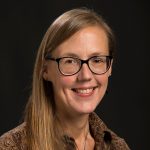The problem we needed to solve
 The University of Wisconsin, Milwaukee is steadfastly committed to increasing college completion and doing so equitably. For years, though, we found math to be a significant barrier to students’ progress toward graduation. Gateway math completion outcomes in our traditional algebra-based developmental sequence were low, with only a 55% pass rate.
The University of Wisconsin, Milwaukee is steadfastly committed to increasing college completion and doing so equitably. For years, though, we found math to be a significant barrier to students’ progress toward graduation. Gateway math completion outcomes in our traditional algebra-based developmental sequence were low, with only a 55% pass rate.
UWM serves roughly 25,000 undergraduate students each year, and on average 40% of incoming first-year students are deemed as needing additional support to prepare for college-level math. With our low success rate in gateway math, we knew that a sizeable number of our students were falling through the cracks and not advancing toward their goals.
Seeking a new approach to provide students more relevant options and an engaging learning experience
We worked to address this by adopting math pathways – a STEM-focused algebra path and a quantitative reasoning math literacy path, both designed to reduce the 2-3 term developmental math sequence to just two terms and to give students math options better aligned with their areas of studies and career paths. As a department, we also committed to an active instructional model to better engage students.
In our search for an effective curriculum to improve instruction and our students’ learning experience in math literacy, I learned about Carnegie Math Pathways Quantway. Following our team’s participation in a Pathways orientation workshop, we decided to adopt it to replace our textbook, and were so pleased with it. I loved the idea of the problem situations and not having a prescriptive textbook. Along with the rich, contextualized curriculum, Quantway gave us access to high-quality peer-based professional training around an evidence-based active teaching approach and ongoing opportunities to improve these resources.
And the results of this decision were impressive. We saw gateway course success rates dramatically improve to 73% and 77% respectively for our two-term math literacy and algebra pathway sequences.
Embracing deeper reform with a coreq solution in partnership with Carnegie Math Pathways
In 2017, our department took our developmental reform effort a step further. Recognizing that we were still losing students in the gap between our developmental course and the credit-bearing gateway course, and seeing the growing evidence behind the national coreq movement, our department decided to redesign our math options. I began to reach out to the Pathways community to explore reworking Quantway Core and College offerings into a single-term corequisite course.
Working collaboratively with the Carnegie Math Pathways team as well as math faculty in the Pathways national network, we deconstructed the Quantway College content and built in the Quantway Core scaffolded supports alongside the embedded Pathways Productive Persistence supports, creating a coreq course that I piloted with my students in spring 2018.
Powerful results thanks to a well designed solution
 The pilot was a tremendous success. Since Spring 2018, we have enrolled 373 students in our Quantway coreq course and achieved an average success rate of 86%. This is a 13% improvement from the previous two-term sequence, and a 30% increase from outcomes prior to our math pathways implementation. Further, coreq implementation has positively impacted outcomes across groups as well. With the Quantway corequisite implementation, we’ve narrowed a 32 percentage point gap in success rates between Black and White students to just 5 points. In fact, UWM’s Quantway corequisite course has been recognized by the Wisconsin system as having some of the strongest improvements in terms of equitable passing rates across all demographic groups.
The pilot was a tremendous success. Since Spring 2018, we have enrolled 373 students in our Quantway coreq course and achieved an average success rate of 86%. This is a 13% improvement from the previous two-term sequence, and a 30% increase from outcomes prior to our math pathways implementation. Further, coreq implementation has positively impacted outcomes across groups as well. With the Quantway corequisite implementation, we’ve narrowed a 32 percentage point gap in success rates between Black and White students to just 5 points. In fact, UWM’s Quantway corequisite course has been recognized by the Wisconsin system as having some of the strongest improvements in terms of equitable passing rates across all demographic groups.
This really demonstrates for us the power of a coreq solution. By not allowing students to fall through the cracks of remediation courses, we believe the Quantway coreq is better serving our students. By providing our students the ability to directly enroll in a college-level math course designed with the supports they need to be successful, we’re giving all students more equitable access to college math and a better chance at success in college, career, and beyond.
